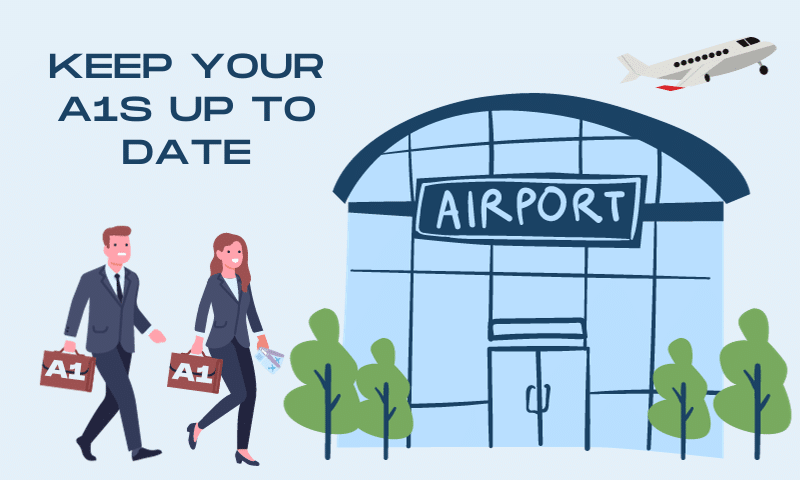The A1 certificate documents which country should cover social security within the European Union (and the European Economic Area) when a person works across international borders. When an employee performs work in multiple jurisdictions within the EU/EEA, only one state should cover social security. The state of coverage is also the state in which the employer should make contributions, and the A1 certifies to which state this is.
If your employees travel between states for work, generally, you will need a A1 certificate covering this activity. An A1 certificate is normally valid for a period of one year. A1s do not expire by the end of the year but rather by the end of the period in which they are applied for. The turn of a new year is, however, a good time to prepare for the renewals in store for the coming year and also re-visit the terms under which the A1s were given.
The consequences of having no or an invalid A1 while working in another state can be quite significant ranging from warnings to hefty fines and restrictions on entry for both employees and the employer.
The EU Act 883/2004 legislation coordinates the social security systems of the European Union (EU) member states. Its main purpose is to ensure that the social security rights of people moving within the EU for work or other reasons are protected, regardless of which member state they are in.
The Act applies to all EU member states, as well as Iceland, Liechtenstein, Norway, and Switzerland. It covers a wide range of social security benefits, including pensions, unemployment benefits, health care, and family benefits.
The Act establishes rules for determining which member state is responsible for paying benefits to an individual, and it lays out the procedures for claiming benefits and exchanging information between member states. It also includes provisions to protect against double coverage and to prevent fraud.
Overall, the EU Act 883/2004 plays an important role in facilitating the free movement of people within the EU and helping to ensure that they have access to social security protection wherever they go within the EU.
Get assistance with your a1s
* By checking GDPR Consent, you agree to let us store the information you provided in our system. You can always contact us to permanently remove your data.







 ® – 2024. All rights reserved. Crossbord
® – 2024. All rights reserved. Crossbord